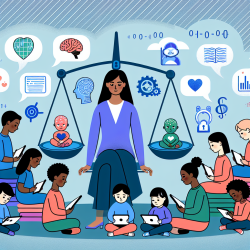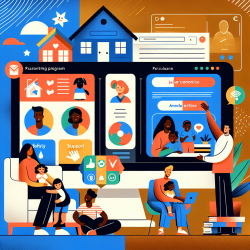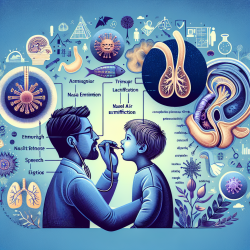The COVID-19 pandemic has significantly accelerated the adoption of digital health interventions (DHIs) in mental health care. The recent meta-review, "Digital Health Interventions for Delivery of Mental Health Care: Systematic and Comprehensive Meta-Review," provides valuable insights that can help practitioners improve their skills and outcomes. This blog will discuss the key findings of this research and how they can be implemented to enhance mental health care for children.
Key Findings from the Meta-Review
The meta-review analyzed 304 studies and found that DHIs show promise in treating various mental health conditions, including:
- Substance use disorders (52% of research)
- Mood, anxiety, and traumatic stress disorders (29%)
- Other mental health conditions (<5%)
The research highlights the effectiveness of several DHI modalities, including:
- Synchronous and asynchronous communication
- Computerized therapy
- Cognitive training
- Virtual reality
- Mobile apps
- Social media platforms
- Web-based forums
Implementing DHIs in Pediatric Mental Health Care
To create great outcomes for children, practitioners can implement the following strategies based on the meta-review findings:
1. Synchronous and Asynchronous Communication
Synchronous communication, such as video calls, provides real-time interaction, making it easier to build rapport and engage children. Asynchronous communication, like emails and text messages, can be used to reinforce therapy goals and provide ongoing support.
2. Computerized Therapy
Computerized therapy programs offer structured and evidence-based interventions that can be tailored to the child's needs. These programs can include cognitive-behavioral therapy (CBT) modules, interactive games, and educational content.
3. Cognitive Training
Cognitive training exercises can help children improve their cognitive functions, such as attention, memory, and problem-solving skills. These exercises can be delivered through computer programs or mobile apps, making them accessible and engaging for children.
4. Virtual Reality
Virtual reality (VR) can provide immersive experiences that make therapy more engaging and effective. For example, VR can be used for exposure therapy to help children overcome fears and anxieties in a controlled environment.
5. Mobile Apps
Mobile apps offer convenient and accessible tools for mental health support. However, it is crucial to select apps that are evidence-based and validated. Practitioners can recommend specific apps to parents and caregivers to ensure their effectiveness and safety.
6. Social Media Platforms and Web-Based Forums
Social media platforms and web-based forums can provide peer support and a sense of community for children and their families. These platforms can also be used to disseminate educational content and resources.
Encouraging Further Research
While the meta-review highlights the potential of DHIs, it also underscores the need for further research in understudied mental health conditions. Practitioners are encouraged to stay updated on the latest research and contribute to the evidence base by conducting their own studies and sharing their findings.
Conclusion
Digital health interventions offer promising opportunities to enhance mental health care for children. By implementing the strategies discussed in this blog, practitioners can improve their skills and create better outcomes for their young clients. To read the original research paper, please follow this link:
Digital Health Interventions for Delivery of Mental Health Care: Systematic and Comprehensive Meta-Review.










